Write Us
We are just a call away
[ LET’S TALK AI ]
X
Discover AI-
Powered Solutions
Get ready to explore cutting-edge AI technologies that can transform your workflow!

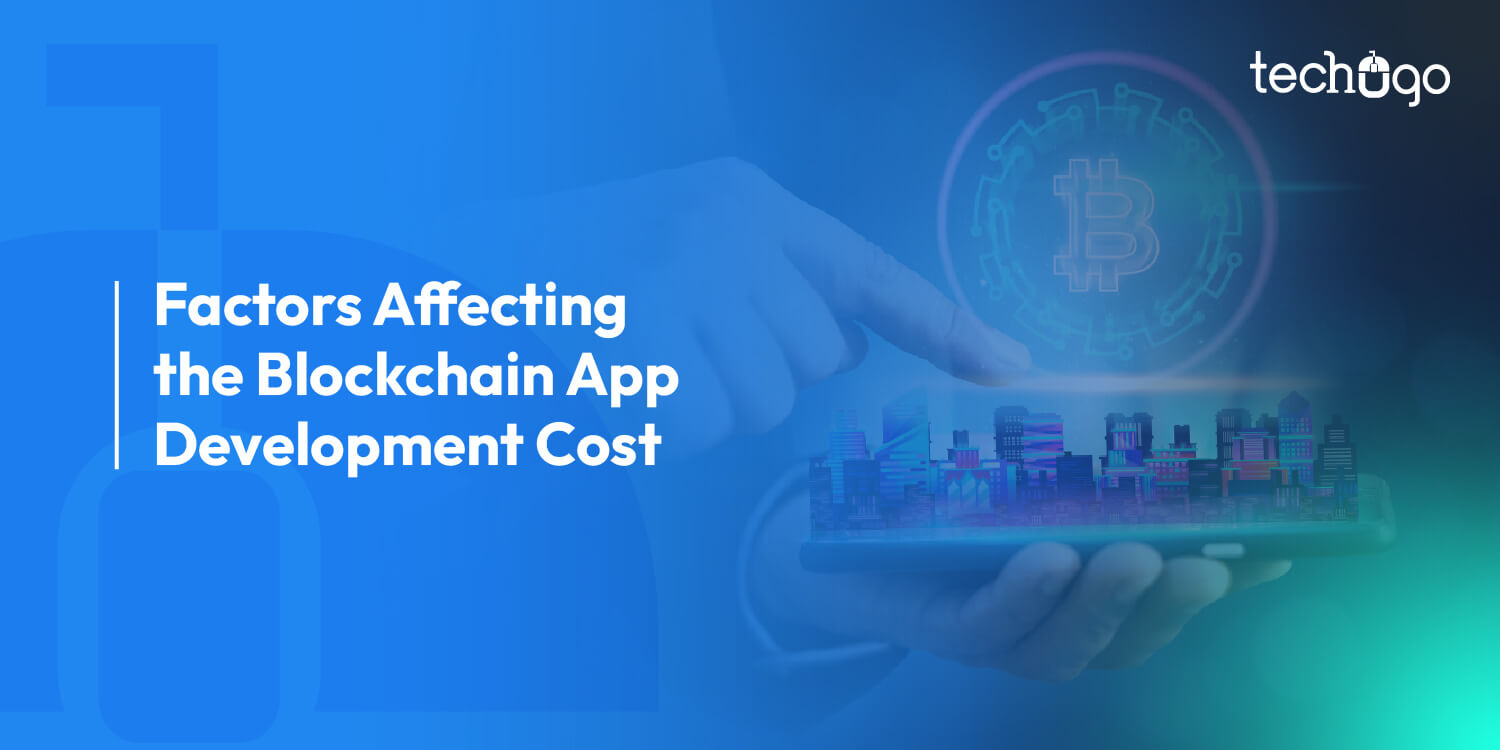
In the ever-changing technological realm, blockchain technology has been recognized as a revolutionary solution with the potential to transform different industries. As more companies and organizations become aware of blockchain’s benefits, the demand for blockchain-related development services grows.
The demand for blockchain app development has exploded due to the introduction of Web3, a brand-new decentralized universe. Web3 is poised to change the way that transactions and business are conducted. By using this technology, Web3 owners could create an open system that is well-designed and accessible to everyone who participates.
With the rise of Blockchain technology, many may wonder whether it offers an acceptable return on investment. Many interesting applications are available for blockchain technology. According to experts in the field, investment in blockchain is expected to increase dramatically shortly.
A report by Grand View Research predicts that by 2028, the world marketplace for Blockchain technology will amount to AED 1,449.19 billion. From 2021 to 2028, the study predicts that the CAGR will be 82.4%. This demonstrates how lucrative the blockchain market is for new startups.
As Blockchain-based solutions continue to develop, various concerns arise. The most frequent question is what the development of blockchain costs. The cost to develop a mobile app for blockchain can vary based on various aspects. It is believed that somewhere between AED 55,000 and AED 100,000 represents the standard blockchain development costs.
Let’s dig deeper to discover the exact details that determine how much your blockchain-related initiative will be.
Blockchain apps are decentralized applications that operate on an open ledger. The blockchain app type offers many advantages over traditional applications. One of the significant advantages of a blockchain application is that it’s safer than a traditional app. In a traditional application, all information is stored on the central server.
If the server was compromised, all the information could be compromised. Since blockchain is extremely secure because of its decentralization and the use of cryptography, it is a great platform for applications that need an extremely high level of security, such as healthcare or financial services. Additionally, blockchain applications are tamper-proof. This means that once data has been added to the system, it cannot be altered or erased. This is crucial in cases where data integrity is crucial, like supply chain management and voting systems.
Blockchain applications have the potential to be much more productive than conventional apps because of the absence of intermediaries. This can result in less expense and quicker transactions. Ultimately, blockchain technology has numerous advantages when planning any app you develop.
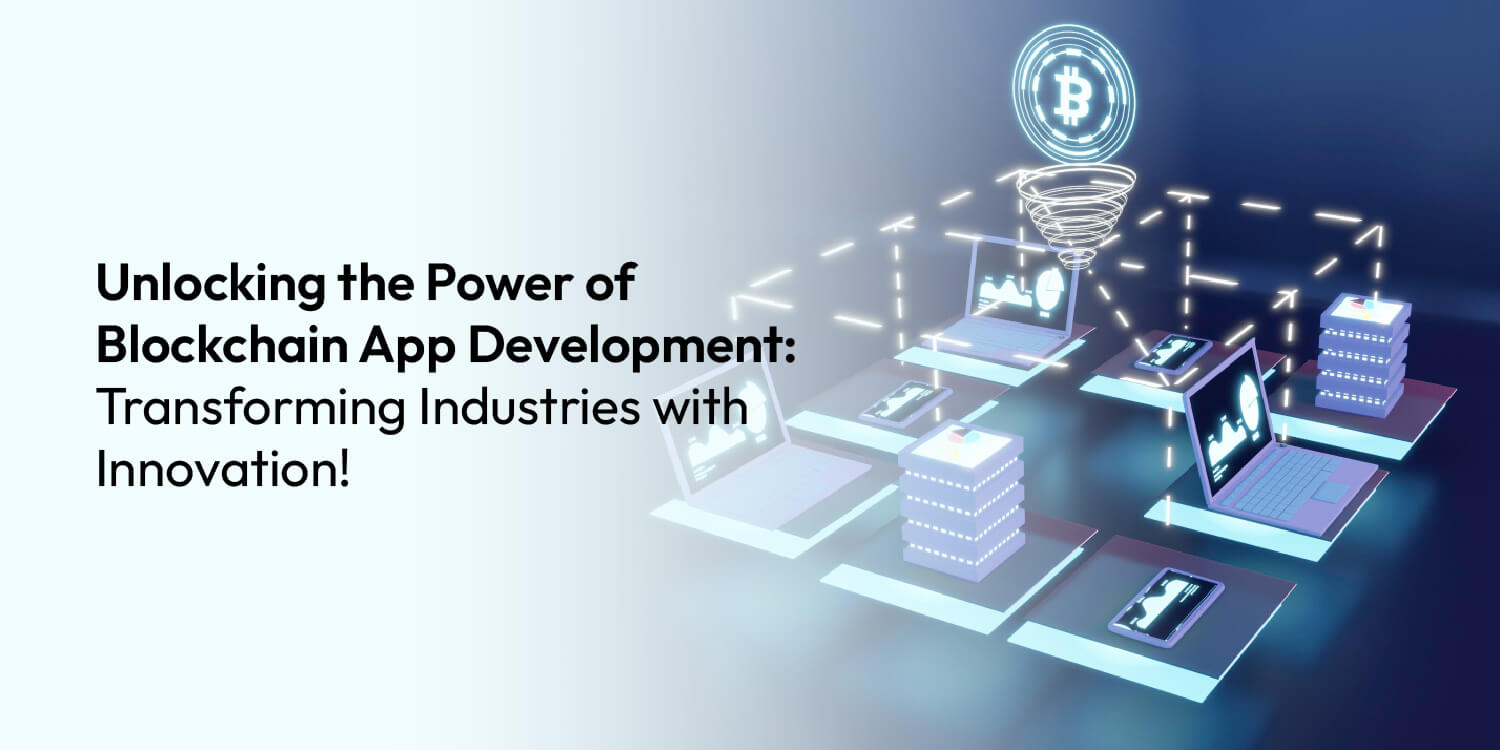
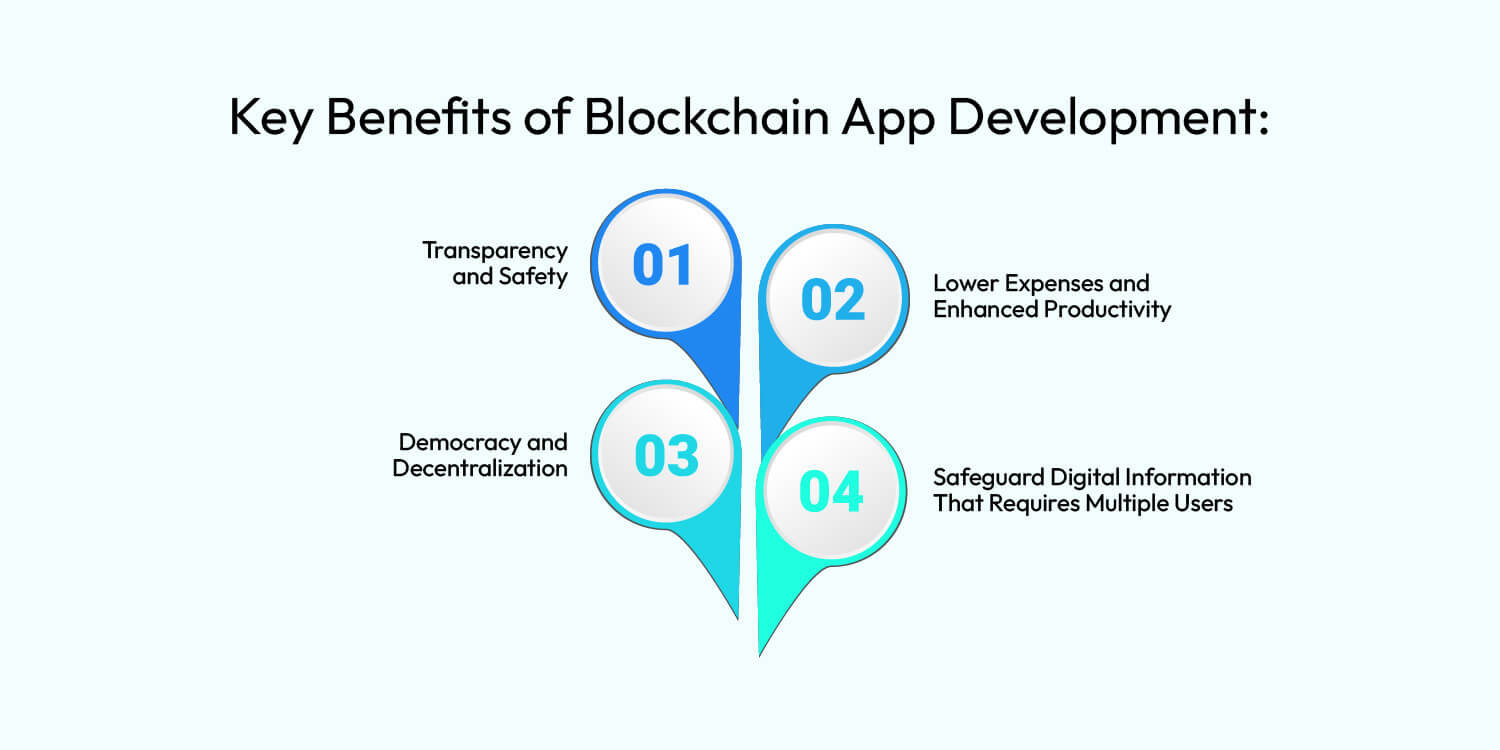
The most creative innovations by the top mobile app development firm based in Dubai use Blockchain technology. Due to blockchain technology, many industries are likely to transform. We analyze the importance of blockchain technologies in Android creation in Abu Dhabi and its potential benefits to various industries.
The global size of the blockchain market was estimated to reach AED 13.48 billion by 2020. The industry is expected to expand at a compound annual growth rate (CAGR) of 56.1 percent, reaching AED 253.55 billion in 2028.
Security and transparency are two benefits of blockchain technology utilized by Dubai’s most reliable mobile app development firm. Blockchain is an open ledger that tracks transactions across multiple computers. This means that there is no single point of failure. Furthermore, the data stored on the blockchain is indestructible. Because of its high degree of security within Android app design in Abu Dhabi, blockchain technology is ideal for use in a range of fields where secure transactions are vital.
Since blockchain technology speeds up transaction times, it has the potential to cut costs and improve efficiency. Banks, as intermediaries, are a component of traditional transactions and can lead to delays and increased costs. Without the requirement for intermediaries, transactions can be completed faster using blockchain technology. Significant cost savings and increased efficiency could result from this.
Blockchain technology is employed in the development of mobile apps in Riyadh. For instance, it can be used within the supply chain industry to track the flow of goods from the manufacturer to the end-user. In this way, the amount of time and expense associated with human verification and tracking can be reduced.
Since blockchain technology is not centralized, it does not mean that the data or its transactions remain under the authority of any one individual. Anyone can join the network because of this decentralization, which raises the standards of democratic governance and transparency.
One entity cannot control the transactions or data in the decentralized system. This makes it more difficult for anyone seeking to exploit the system to influence it, which can lead to a more equal, democratic, and fair system.
A best mobile app development company in Saudi Arabia leverages Blockchain technology and integrates it into the voting industry to offer an extra secure and transparent voting procedure. This ensures that every vote is recorded and helps to eliminate fraud.
Encryption is an essential element of our digital world, and blockchain development makes it incredibly complex. It’s so complex that it’s impossible for anyone with no decryption key to navigate the system. This makes blockchain an ideal solution in any situation that requires permitting access to various users and confirmation of modified data.
An excellent example is the financial and legal industries. In these fields, requiring multiple signatures on the same contract or document is typical. Blockchain technology allows this information to be edited and accessed simultaneously by a variety of parties without having to connect with one another. The only proof needed is a thorough analysis of the blockchain to observe the changes that were made.
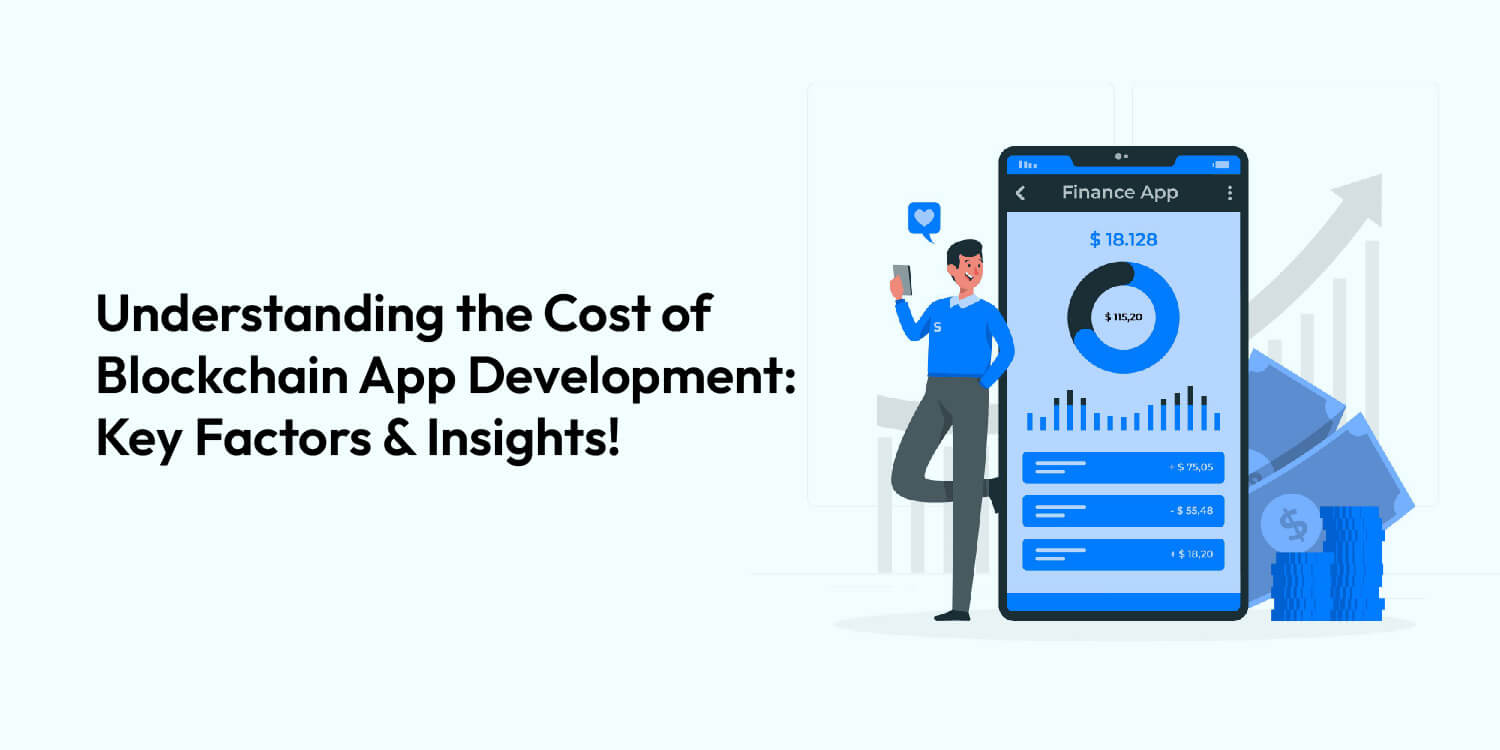
Are you looking to begin your blockchain-based project, but are you wondering how much the investment is for blockchain development? It’s not just your business; a majority of companies that are just beginning to learn about blockchain technology always ask the same thing about how much it will cost. The simplest solution to the question is ” It Depends.”
For a rough estimation, the cost to build a super app for blockchain technology can range between AED 80- AED 400000 or even more. Certain aspects affect the total development cost of blockchain, such as the app’s target market and its UI/UX design, the time of launch, ICO or proof of concept, etc.
The overall level of complexity of the application is the primary element that determines the price of the app and its timeframe. In addition, to determine the precise cost of implementing blockchain, it’s crucial to identify the type of blockchain technology you want to use for your business. Blockchain solutions are built on networks or cryptocurrency. Our efficient guide to the development of blockchain apps can help you comprehend the technical aspects of the technology starting from the beginning.
We have already said that the cost of developing a blockchain application may vary depending on numerous variables. Let’s get started and examine each aspect and the way they impact the price.
The primary factor determining the price of blockchain application development is complexity. Making an app with varying levels of complexity requires technical know-how. For example, a complex app needs experienced blockchain app development company who master the field and can deliver top-quality outcomes.
Simple Blockchain Apps include fundamental functionality that requires less time and resources. They could be simple payment systems built around existing cryptocurrencies and smart contracts.
Moderately complex Blockchain apps may require more time than applications with a low level of complexity. The costs for developing blockchain apps are also higher in this class. Central and decentralized components interconnect the apps. Modern blockchain mobile app development requires huge and complicated data processing, advanced tools to build expertise, and more time to create, and the price is increasing rapidly.
There are three primary reasons that have led to the app’s success: user-friendliness, advanced features the app’s proprietor provides, and marketing. Unique selling points (USPs) are the app’s capabilities, and the more innovative they are, the more innovative they are. The price of developing an application for blockchain increases each time a new feature is added.
It is much easier to keep track of expenses on a blockchain app development project by using an industry-specific cost calculator. However, the more modern features an app offers, the greater the chance it will receive favorable feedback from customers and attract new users.
One of the most effective methods of keeping track of the amount of money being poured into a project is to use an app that calculates the cost of blockchain development. On the other hand, the chance of receiving positive feedback from users and the growth of new users increases as the app’s complexity increases.
Around 10 percent of the expense of developing the blockchain app is spent on discovering. One of the most important aspects that significantly impact the cost of developing blockchain applications and how the users perceive them is the UI/UX design. UX (UX) designers work with you to create an attractive design concept and a UX map. To fulfill the project’s goals and meet users’ needs, designers make wireframes, prototypes, and user interfaces during this phase.
A well-designed UX/UI design will ensure that it is easy to use, visually pleasing, and user-friendly, increasing the level of satisfaction and engagement of users. However, creating a design of this caliber requires a lot of care, attention to detail, and lots of iterations that increase the cost of creating the blockchain. Investing in top UX/UI design services is crucial to leaving a lasting impression on the users and guaranteeing the app’s success in a competitive market.
Blockchain applications can be broadly classified into two categories. Cryptocurrency-based solutions are created using a decentralized ledger system that tracks and records transactions. Because of the system’s decentralization, there is no requirement for a third party to approve or verify transactions, which could result in reduced costs for blockchain-based apps.
Non-cryptocurrency-based solutions use a centralized ledger system. In this kind of system, the central authority checks and approves each transaction. Due to this centralization, Blockchain app development could be more costly.
The integration and development phase involves creating the blockchain software and ensuring it functions seamlessly with different systems. In this phase, developers concentrate on programming the software and then integrating it into existing solutions and third-party services.
It is possible to begin by building the Minimum Viable Prototype (MVP) that lets you build an app with the essential functions, gather user feedback, evaluate the demand for blockchain solutions, and make appropriate adjustments to take advantage of the benefits of developing blockchain-based apps. This strategy helps to prioritize important features and maximize resources, ultimately limiting the budget while reducing the overall cost of creating an application that uses blockchain technology.
Blockchain software is built through development and integration and is guaranteed to be compatible with other platforms. Blockchain app developers are now focused on creating the application’s code and linking it to third-party services and existing solutions.
If you examine the development of mobile apps and the way in which the cost breakdown structure is constructed within the field, there is a difference between three sets: large-sized companies, Medium-Sized Blockchain App Development Agencies, and Small-Cap Agencies.
Smaller companies typically cost much less than large and medium-sized companies to develop apps because they need to establish their portfolio of work. Large-cap firms, on the other hand, tend to be selective about the projects they choose to take on. The reasons behind this large cost estimate can stem from any reason ranging from the financial management of a large group to the desire to keep an established standard for the portfolio.
In both cases, companies that are preparing to venture into the Blockchain industry generally prefer to invest in mid-sized Blockchain App Development Companies because they have the resources to manage the project and don’t offer a cost that will burn the brand’s pocket.
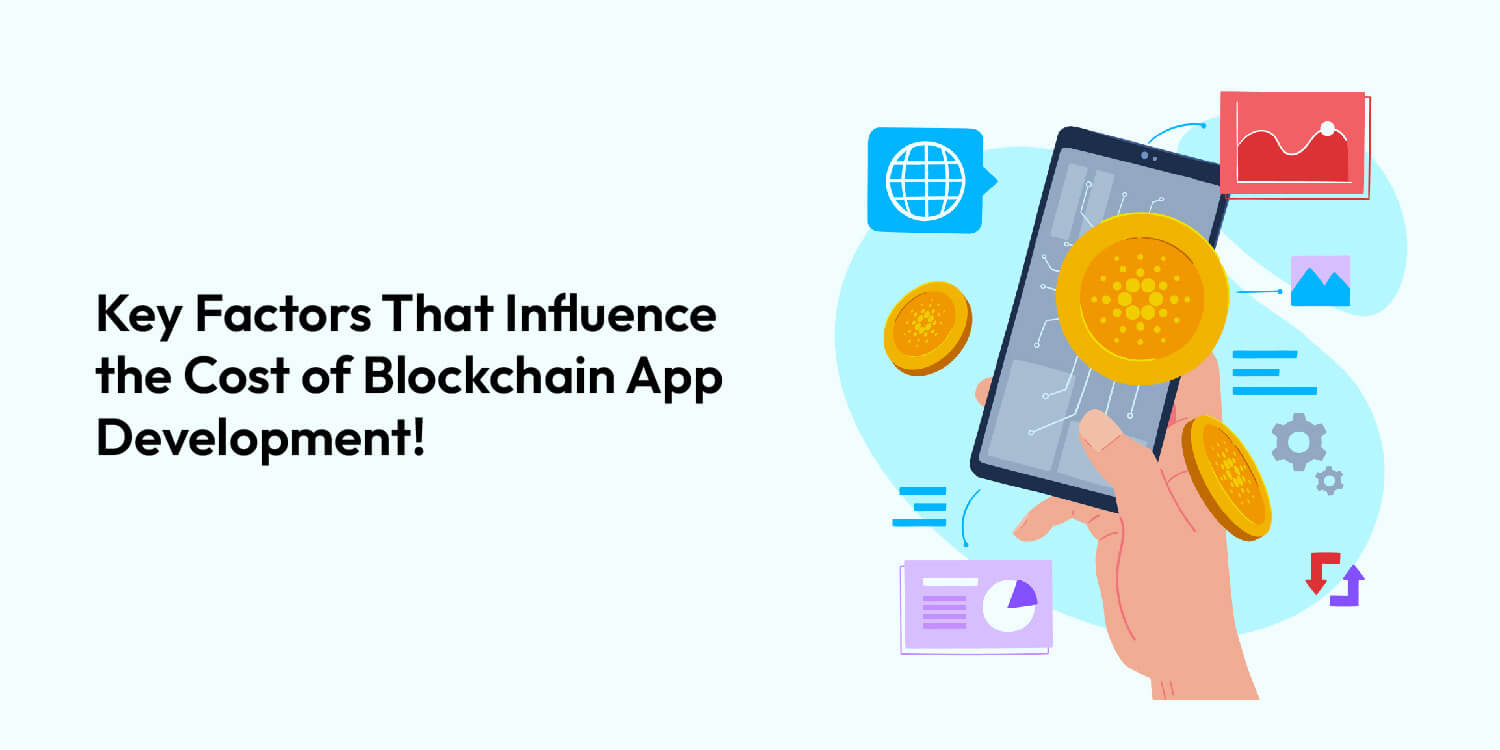
Various variables beyond the initial structure define the budget for the project that determines the final cost, such as the complex nature of smart contract technology, level of decentralization, its integration with the existing software for business, and maintenance regularly. A deeper analysis of how these factors impact the cost of blockchain technology can be found in the following paragraphs:
The complexity and cost of a blockchain application greatly depend on the degree of decentralization. Higher decentralization implies more nodes involved in maintaining the network, which can increase the requirement to process and store data. Complex consensus methods such as Proof of Work (POW) or Proof of Stake (POS) require additional resources to achieve node agreement. Creating decentralized applications (dApps) requires a robust structure and error management to control interactions between nodes and ensure stability in the network, which raises the development cost.
Creating secure Blockchain smart contracts is essential for automating and enforcing blockchain-based agreements. A specific understanding of blockchain-related platforms, cryptography, and secure coding is required for this work, and it can have a major impact on the development cost. The cost increases due to the time and knowledge required to develop more complex smart contracts that incorporate complex business logic, various scenarios, and interfacing with other contracts or systems. To ensure the security and accuracy of your contract, rigorous testing and auditing processes are necessary, which increases the cost.
The development costs rise when they have to ensure that blockchain applications work with existing third-party systems and software companies. To ensure compatibility, this procedure requires substantial customization and potential adjustments to the existing and blockchain software. It requires lots of effort to develop APIs, middleware, or other tools for integration, which allow an efficient exchange of information between processes in the corporation with blockchain tech. Be sure to test your APIs’ integrity thoroughly to ensure data consistency and reliability. In addition, you should consider ongoing costs to ensure that updates remain and integrations are compatible.
Post-deployment support ensures that the blockchain application continues to function properly even after it’s been released. This is the time to ensure rapid resolution of technical or bug concerns, regular performance monitoring to identify and fix inefficiencies, and regular maintenance to keep the software up-to-date. Additionally, ensuring security with regular audits and updates is crucial to guard against emerging threats and provide support to customers to increase user satisfaction.
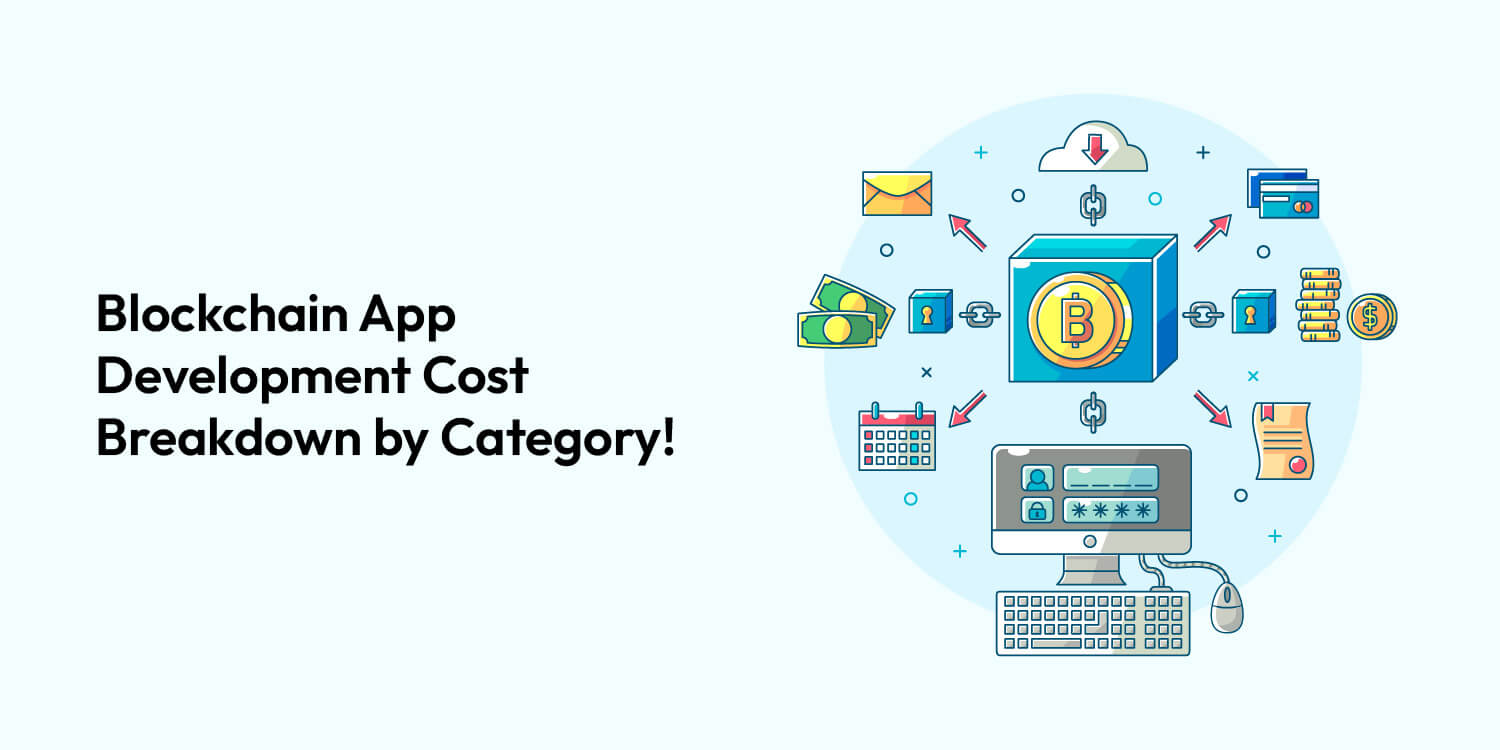
There are two major types of blockchain-related applications. In this section, we discuss each in detail.
Blockchain-based cryptocurrency applications are built around digital currencies and related technologies. The company that develops crypto wallet apps offers a range of functions for the apps, including crypto exchanges, digital wallet payment gateways, and platforms for token creation. Digital wallet applications permit users to store and manage their cryptocurrency and generally cost AED 60,000.
Cryptocurrency exchanges, which enable the trading of different digital currencies, may be more costly, with prices between AED 70,000 and AED 600,000, depending on their security and complexity features. Payment gateways that handle cryptocurrency transactions typically run from AED 40,000 to AED 120,000, whereas platforms for creating or managing tokens can cost between AED 3,500 and AED 70,000. Costs can vary depending on factors like the location and expertise of the development team and the requirements specific to the particular project.
Non-cryptocurrency-based blockchain applications utilize blockchain technology for purposes other than digital currencies. They cover a range of fields, including healthcare, supply chain management, identity management systems, voting, and smart contracts. For example, blockchain-based solutions that aim to improve transparency in the supply chain and tracking could be priced between AED 60,000 and AED 200,000. Healthcare applications, which maintain the patient’s records and guarantee data integrity, are generally more complicated and cost anywhere between AED 70,000 and AED 400,000.
Blockchain development depends on various programming languages and technologies that are the backbone of decentralized apps and smart contracts. Understanding the fundamental elements before you hire blockchain developers for developing app will assist businesses in making informed choices about their projects. The technology stack you choose will affect the overall cost of your venture. Here are a few essential aspects that make up the technology stack that are commonly used in blockchain development
Solidity is a high-level programming language created specifically for writing smart contracts for the Ethereum platform. It is among the most popular languages for creating Decentralized Applications (DApps) and executing self-executing contracts. Solidity is by far the most frequently utilized programming language due to its efficiency and security, which are not achievable in every other programming language.
Like Solidity, Rust is the most popular programming language used for blockchain development. Although Rust is a bit more complex than Solidity, it is also extensively utilized for blockchain development.
Rust is a systems-oriented programming language that provides an ideal balance between security, performance, and concurrency. It is increasingly popular in the development of blockchain infrastructure, including blockchain clients and runtime environments.
Ethereum is the most popular Blockchain application platform that supports decentralized apps and smart contracts. It has a strong environment and Turing-complete language (Solidity) to develop and run DApps. Additionally, Ethereum brings more efficiency to your project than other blockchain platforms because of its large number of users, robust infrastructure, and security.
Binance Smart Chain is a blockchain platform designed to support smart contract development. It is compatible with Ethereum Virtual Machine (EVM) and offers fast and inexpensive transactions compared to those on the Ethereum network. The lower transaction cost and the superior efficiency Binance offers are the primary reasons why most businesses prefer Binance Smart Chain over Ethereum.
The growing acceptance of blockchain-related technology has inspired companies to look into potential applications. Although the conventional method of developing apps is well-understood, Blockchain technology presents new challenges. However, it also offers potential. The exact blockchain app development cost in the market is merely an estimation. The exact cost of creating the product could depend on various factors, such as the application’s sophisticated features, the team’s place of work, the size of the mobile app development company in Dubai, and many others.
As we close this blog, we hope that we’ve addressed your query about the expense of creating a blockchain application and provided you with the required information. We attempted to cover all the important details about costs in this blog.
Build a Secure & Scalable Blockchain App with Techugo!
Let’s turn your vision into reality. Get in touch today!
Write Us
sales@techugo.comOr fill this form